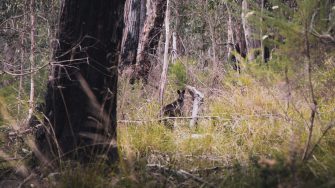
Supervisors: Prof. David Keith (UNSW), Dr Ayesha Tulloch (USyd), Mark Tozer (OEH)
A PhD opportunity is available for an independent and self-motivated Australian domestic postgraduate student with a 1st Class Honours degree in Biological Sciences. This project will be supported by the NSW Saving Our Species program (Office of Environment & Heritage, OEH) and the Centre for Ecosystem Science (CES), School of Biological, Earth and Environmental Sciences (BEES) at the University of New South Wales (UNSW) Sydney.
Bushland is being eroded from Australia’s urban and rural landscapes at an accelerating rate, resulting in irreversible loss of biodiversity. Small remnant patches are often regarded as the most expendable in planning decisions because theory predicts that large and connected habitat patches should support more species and experience lower extinction rates than small disconnected patches, other things being equal. But how important are small patches for species persistence in real landscapes? This project aims to build the evidence base to support regulatory and investment decisions for conservation of Threatened Ecological Communities and Species. It will focus on the Cumberland Plain in western Sydney, a data-rich region where a concentration of threatened species and ecological communities intersects with intense pressures for urban development. All field work will be conducted in western Sydney bushland.
The project has two main components, with a focus on plants:
- Strategic resampling of historic surveys and analyses of available time series to quantify the effect of patch size and relevant covariables on species persistence, local extinctions of threatened species, exotic species invasions and changes in habitat structure.
- Development of spatially explicit models and operational rules of thumb to predict which patches are likely to be most responsive to regulatory protection and deployment of conservation resources.
Applicants:
We are seeking applicants with a demonstrated aptitude for critical enquiry, attention to detail and an ability to work safely and independently in a field setting. They must be highly self-motivated and detail-oriented. Relevant experience includes plant identification, vegetation survey techniques, an aptitude for analysing ecological data, and the ability to produce publication quality scientific writing, but extensive prior experience is not expected. The successful applicant will have a First Class Honours Degree (or equivalent) and to have applied successfully for a Research Training Program scholarship or equivalent award. Additional support from the NSW Saving Our Species Program (http://www.environment.nsw.gov.au/topics/animals-and-plants/threatened-species/saving-our-species-program) includes a stipend top-up valued at $6000 per year over three years, limited technical support to assist field sampling and plant identification, and $2000 per year over two years to support travel costs. We are seeking candidates prepared to enrol in a PhD programme at UNSW Sydney starting in Semester 2 in 2018.
Please send an updated CV and a cover letter explaining your suitability for the role to Prof David Keith (david.keith@unsw.edu.au) on or before 6 April 2018. Interviews will be arranged subsequently, and the successful candidate will be required to submit a formal postgraduate study application to UNSW (Final deadline 4 May 2018) and to commence the work in Semester 2, 2018.
